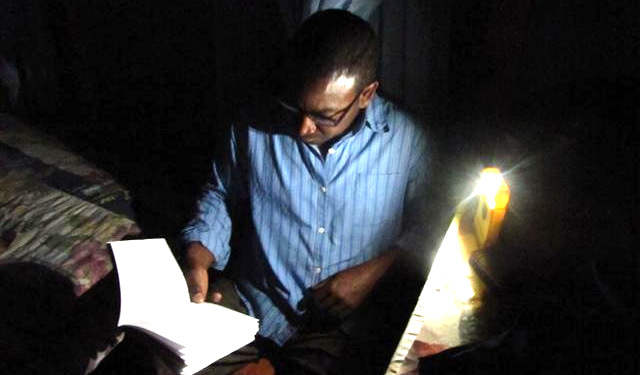WakaWaka, the stylish but cheap solar lamp which was inspired by rural South Africa during the Word Cup and went on to raise R500 000 through Kickstarter in 2012, is finally going to be available on these shores. In the year and a half since its original launch, around R40m worth of lamps have been sold as lifestyle accessories in the US and Europe and more than 500 000 people in disaster zones like Haiti, Syria and the Philippines have benefited from free or low cost lamps distributed via NGOs. Within the next couple of months you’ll be able to buy one here too.
The innovative WakaWaka lamp, which has won plaudits due to its quick charging time and 20 hour usage at 120 lumens, has made it as far as the CES trade show in Las Vegas this week, where two new models have been announced. While htxt.africa didn’t make it to the US this year for the tech-jamboree, we did catch up with one of the creators of WakaWaka, Camille Van Gestel, over the phone last night.
Apparently, he’s having a very debut show. A new WakaWaka Pro updates the basic R400 design and makes it look more like a high end mobile phone for rich consumers (it’ll cost around R500). Meanwhile, he’s also been showing off the WakaWaka Base which includes a 5 000mAh or 10 000mAh charging station with five USB ports.
While a lot of the new features will appeal mainly to outdoors-y types in the developed world, Van Gestel says that the company’s main aim is still to get low cost lamps out to the poorest.
“The new lamp looks more like an iPhone,” he explains, “And we’re selling it into the US and European markets in order to cover our overheads, so that we can carry on supplying affordable lanterns to those who live on less than $2 a day. It’s a bit like Robin Hood, really.”
WakaWaka’s initial Kickstarter project included a ‘Buy One, Give One’ promotion, and for every lamp sold, one was donated to the poor. That promotion lives on, but in order to reduce competition with its own distributors, it’s now limited to a program for donating lamps to Syrian families unseated by the ongoing crisis there.
As in South Africa, Syrian families can spend up to 20% of their monthly income on kerosene for oil lamps – which aren’t just inherently dangerous (the WHO reckons kerosene poisoning is the second most common killer of young children in low income South African households), they aren’t much use for reading by either. A reliable, birght solar lamp not only saves poor families an enormous amount of money, it can also open up education opportunities for young children too.
Despite his innate altruism, however, Van Gestel says that WakaWaka won’t just give lamps away to the needy – he doesn’t believe in handouts as the best way to solve problems. Instead, he explains, families who want a WakaWaka lamp have to earn it by spending time in community programs or volunteering skills first.
Currently WakaWaka is available for sale in just 20 countries. We’re promised that South Africa will be number 21.
(Image credit: Copyright Darlene Young, Thomode/Haiti)

